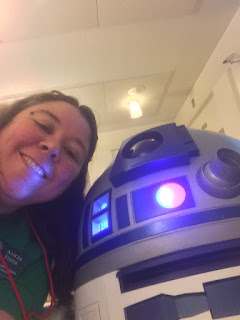I have been teaching students to learn how to problem-solve for over 20 years through courses in mathematics, physics, and computer science. I am passionate about teaching people to learn to code, utilizing technology, design thinking, and STEM/STEAM. I am a strong advocate for interdisciplinary learning and team teaching. I encourage students to take risks in their learning and celebrate their failures along the way to gaining real skills and knowledge. I have been working with teachers to infuse technology into their classrooms as well, teaching various workshops.
I am active with Makerspaces and Digital Fabrication. I believe all educators and students are makers! They learn by creating and doing. Every class can incorporate Makerspace into the curriculum. I have consulted with various schools on building their MakerSpaces and incorporating design thinking. In 2020, I was recognized by NCWIT NJ with the Aspirations in Computing Education award.
Outside of school, I enjoy spending time in the garden with my daughter and cooking up a storm in the kitchen. My current projects in the kitchen are learning how to make bread and making pasta from scratch.
This site was created for a graduate class. Yes, after 20 years I am getting my Master of Education! It will continue to evolve as I reflect on the classes and my continued learning of Instructional Media. I hope you enjoy learning with me.
My previous blog is located here.
Follow me on Twitter: @MsATesta. Instagram: @techgoddess07
